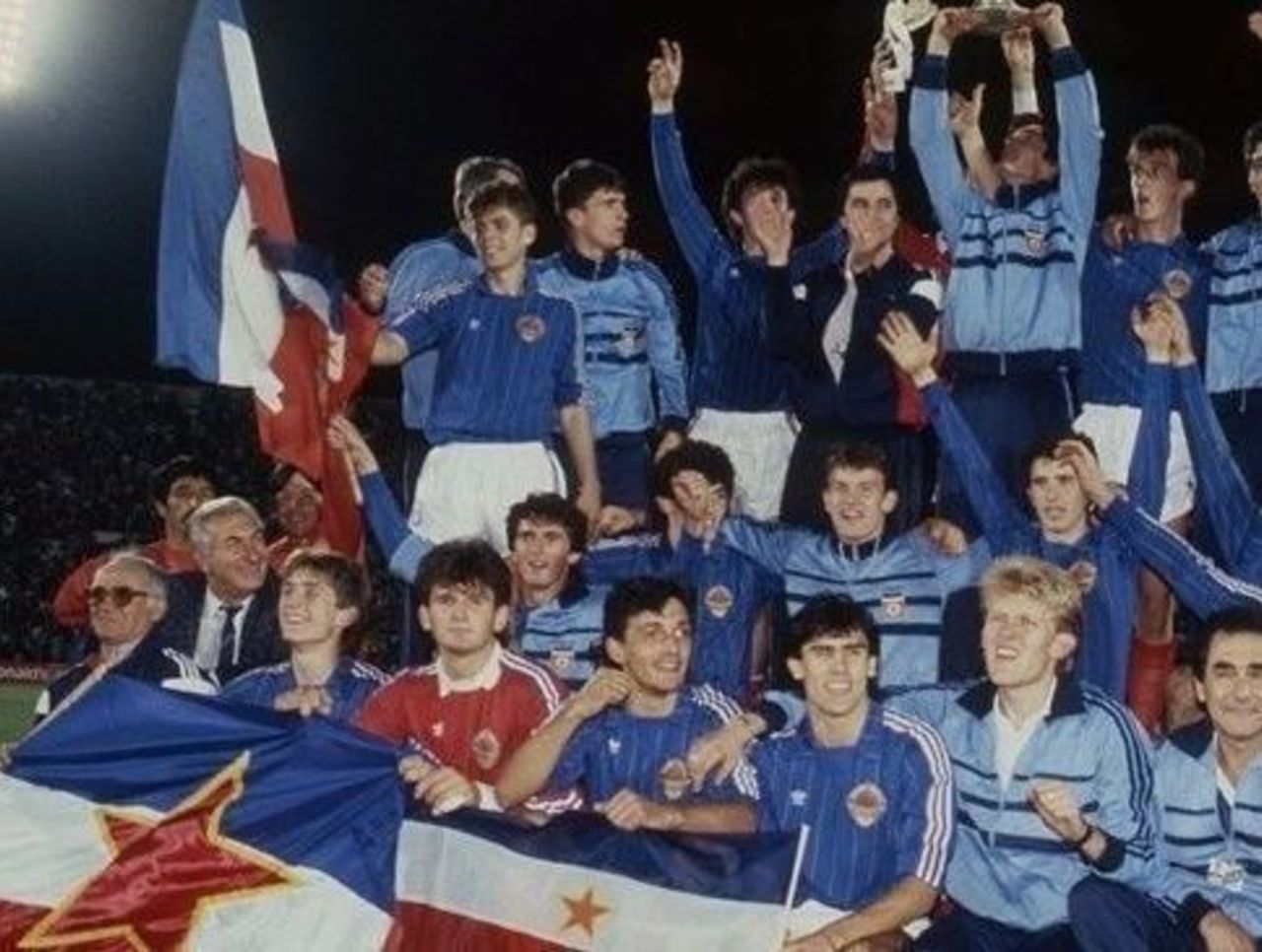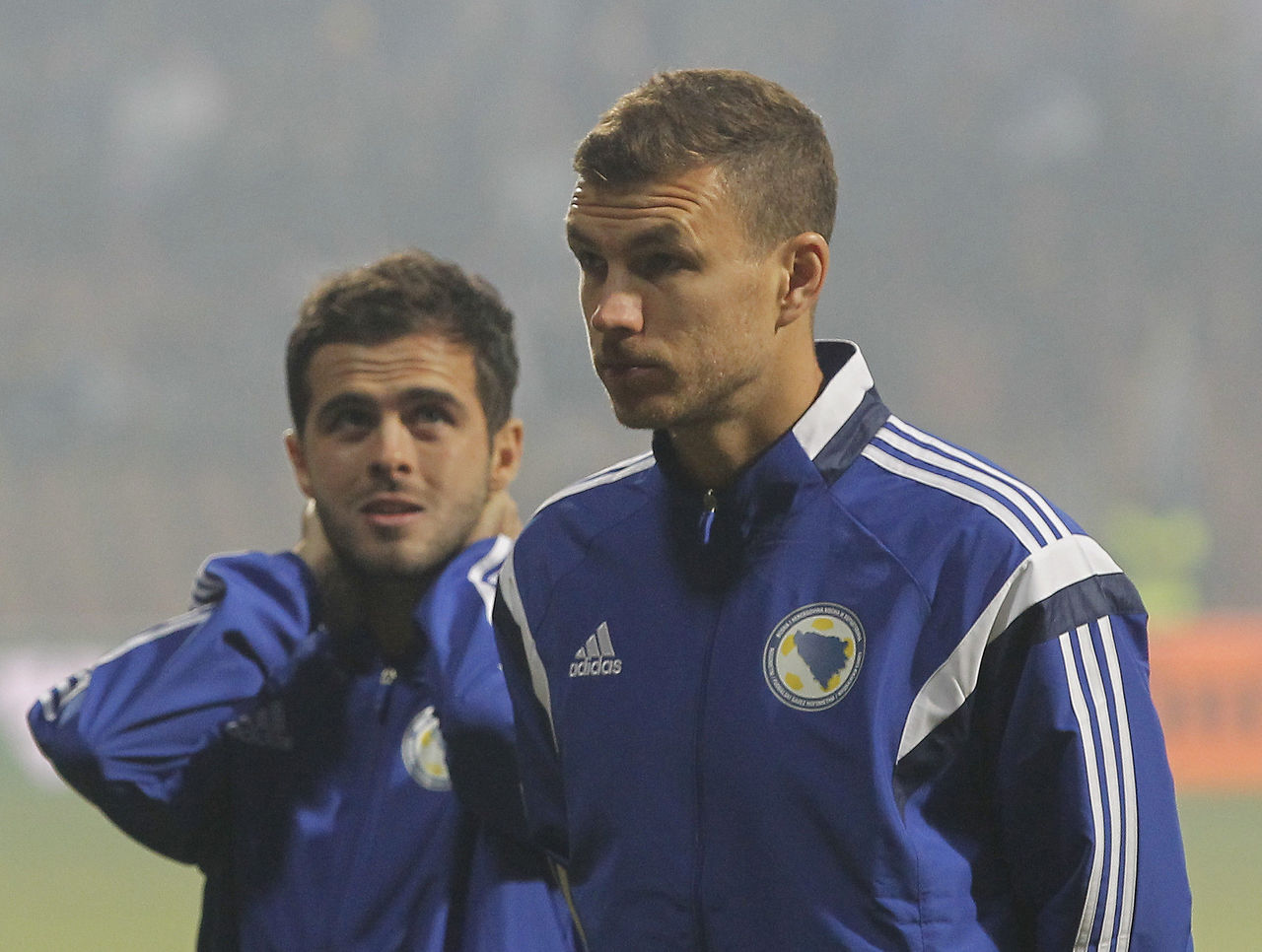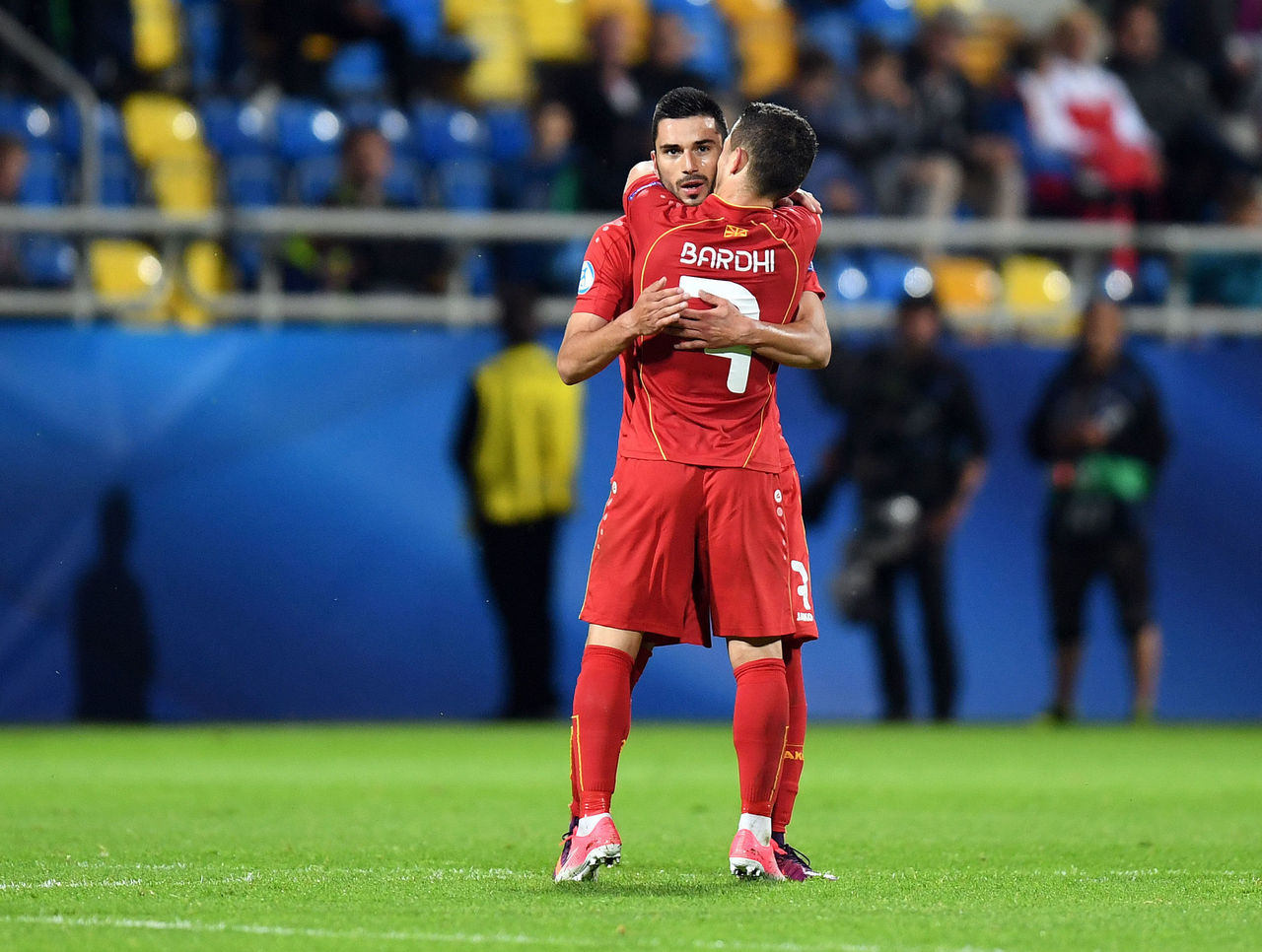Imagining a star-studded Yugoslavia XI
Lives were forever changed, while towns and families were ripped apart by the Yugoslavian war, which broke a once-powerful nation into smaller states. Somewhat trivially, the conflict also resulted in the dissolution of the Yugoslavian national football team.
Ten days before kicking off Euro 1992 in Sweden on the heels of a dominant qualifying campaign, the Federal Republic of Yugoslavia - a side comprised of players from modern day Montenegro and Serbia - was booted from the tournament in conjunction with the United Nations Security Council Resolution 757.
That team was replaced by Denmark, which would go on to lift a maiden major trophy - a historic first fit for the silver screen. That story was as much about the joys associated with shocking success in football as it was about the consequences of violent conflict, and with it, the world was robbed of what could have been one of the greatest teams in football.
These days, football is alive and well in the region. Courtesy of a one-sided victory over Greece on Thursday in Zagreb, Croatia is one massive step closer to a fifth World Cup in six tries. Across the Danube river, neighbour Serbia is preparing for a return to the quadrennial contest after topping Group D in qualifiers.

In footballing terms, Croatia and Serbia boast accolades that Bosnia and Herzegovina, Slovenia, Montenegro, Macedonia, and Kosovo have yet to experience, though the Balkans is an area rife with countless emerging talents. Slovenia is one of the smallest countries by population to play in a major tournament, and has done so on three occasions. Bosnia and Herzegovina participated in the 2014 World Cup, while Montenegro, Macedonia, and Kosovo are all forging their own footballing identities in a relatively narrow window.
It's worth contemplating what could have been, and with some of Europe's biggest clubs littered with stars from the Balkan states, few regions can compete with the abundance of talent from the former Yugoslavia.
With that in mind, here's a current starting XI made up of players from nations once united under the Yugoslav flag; a collection of headliners who could challenge any autonomous group of footballers:

Bench: Samir Handanovic (Slovenia), Stefan Savic (Montenegro), Nemanja Matic (Serbia), Enis Bardhi (Macedonia), Kevin Kampl (Slovenia), Sergej Milinkovic-Savic (Serbia), Mario Mandzukic (Croatia)
Croatia: A third-place finish at the 1998 World Cup was, to date, the pinnacle of Balkan football, and Zlatko Dalic's current squad is rife with stars plying their trade with Europe's biggest clubs. Luka Modric (Real Madrid) and Ivan Rakitic (Barcelona) form two-thirds of an inverted triangle midfield, while Dejan Lovren (Liverpool) and Sime Vrsaljko (Atletico) anchor a talented backline. Ivan Perisic (Inter) sits out wide on the left performing his trademark right-foot step-over move. The likes of Mario Mandzukic (Juventus), Nikola Kalinic (AC Milan), and Marcelo Brozovic (Inter) narrowly miss out.
Serbia: Considered by both FIFA and UEFA to be the successor of the Yugoslavia and Serbia and Montenegro teams, Serbia's best autonomous World Cup finish was a Round of 16 appearance in 1998. The Eagles continue to produce sturdy defenders, with versatile pairing Branislav Ivanovic (Zenit St. Petersburg) and Aleksandar Kolarov (Roma) making the starting XI. Midfield ball-stopper Nemanja Matic (Manchester United) and attacking mid Sergej Milinkovic-Savic (Lazio) just miss out but are on the bench, while Dusan Tadic (Southampton) and Adem Ljajic (Torino) are good shouts as well.

Bosnia and Herzegovina: A participant in the 2014 World Cup as the winner of its qualifying group, Bosnia and Herzegovina's national team is on the rise. Edin Dzeko (Roma) and free-kick savant Miralem Pjanic (Juventus) are easy picks for this hypothetical starting XI, while bull-in-a-china-shop full-back Sead Kolasinac (Arsenal) and shot-stopper Asmir Begovic (Bournemouth) narrowly miss out on a cramped bench. The future is bright for the Dragons.
Slovenia: The only team to defeat eventual champion Italy during 2006 qualifiers, Slovenia bettered that effort by booking a berth at the 2010 installment in South Africa. Not bad for a country of fewer than 2 million people at the time, and if there's one thing the nation has produced, it's 'keepers. Jan Oblak (Atletico) is undeniably world class, while Samir Handanovic (Inter) is a stud in his own right. Underrated faux blonde Kevin Kampl (RB Leipzig) also makes the cut for the trip to Russia.
Montenegro: Yet to qualify for a major tournament, Montenegro is in the infantile stages of its national team after FIFA admitted the nation as its 208th member in May 2007. National goal-scoring record holder Stevan Jovetic (Monaco) leads the charge up top, while Stefan Savic (Atletico) anchors the backline.

Macedonia: A FIFA and UEFA member since 1994, Macedonia's current standing is a modest one, with a decent spell in the late aughts under Srecko Katanec leading to the last few years of decline. Emerging attacking midfielder Enis Bardhi (Levante) is one to watch and makes the bench for Russia, while Goran Pandev (Genoa) continues to defy age-related logic by threading incisive through balls in Italy's top flight.
Kosovo: As the most recent Balkan side to officially register with football's governing bodies after acceptance by FIFA and UEFA in 2016, it's been baby steps for the Dardanians. Kosovo did not win any of its World Cup qualifying matches, but also wasn't embarrassed like many a continental minnow, losing by more than a two-goal margin just once. Attacking mid Valon Berisha (Salzburg) could be one to watch.
(Photos courtesy: Getty Images)